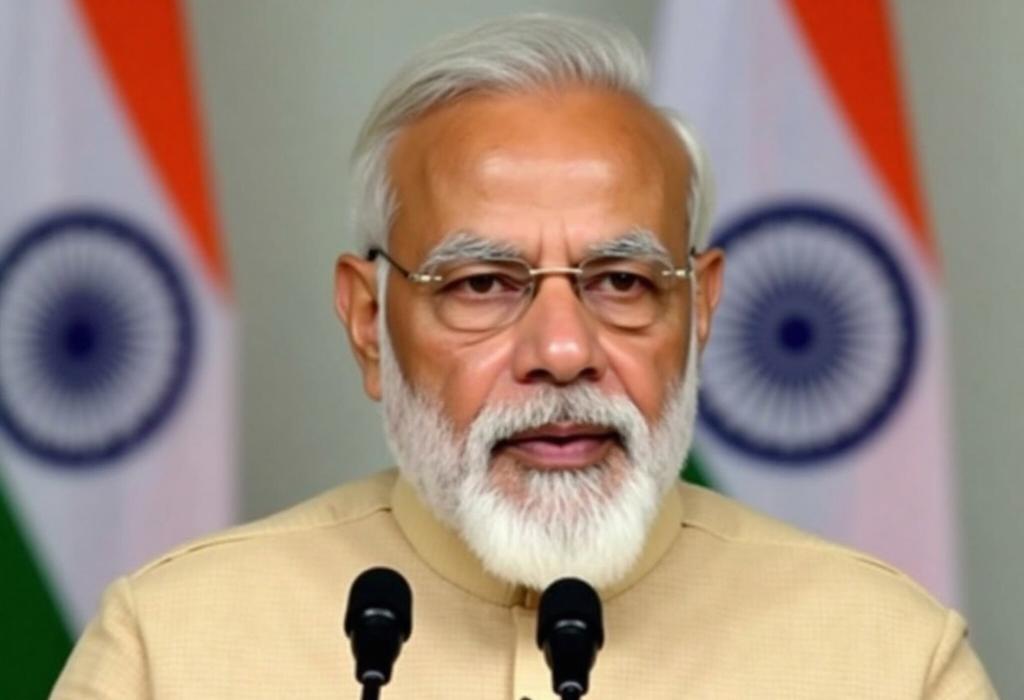At a recent event in Madhubhani, Bihar, Prime Minister Narendra Modi delivered a resounding message to the global community, emphasizing India's commitment to combat terrorism. Speaking in English, Modi stated firmly, 'From the soil of Bihar, I am telling the world that India will identify and punish every terrorist, and those behind them,' just two days after a devastating terrorist attack in Pahalgam that left 26 individuals dead, including innocent tourists. The Prime Minister expressed India's unwavering resolve to pursue those responsible for the attack, believed to have links to Pakistan's military establishment. Modi's strong rhetoric included a promise that the perpetrators would face consequences exceeding their imagination, suggesting that India is prepared to take significant measures in retaliation.
Further highlighting India's response, the Prime Minister announced the suspension of the Indus Waters Treaty, a 65-year-old agreement crucial to Pakistan's water supply, signaling a bold step in escalating tensions between the two nations. Modi's statement was strategically timed to reassure both domestic and international audiences of India's determination against terrorism, and it underscored the support India has received from global powers such as the United States, the European Union, and even traditional adversaries like China and Russia, all of whom condemned the attacks in Pahalgam.
The Terror Front, a shadow group believed to be associated with the banned Lashkar-e-Taiba, has claimed responsibility for the attack. The Indian government's keen emphasis on accountability and justice resonates deeply in a nation that has endured a long history of terrorist violence, particularly from groups receiving alleged support from across the border.
In analyzing this news, it is evident that Modi's shift from Hindi to English during this critical speech served not only to amplify the message of retribution but also to ensure it reached a broader, international audience. This decision reflects a calculated move to portray India as a confident and resolute nation in the face of aggression, thus rallying global support behind India's cause.
Modi's administration has consistently used strong rhetoric against terrorism as a means of unifying public sentiment and fortifying national security policy. This latest outburst may serve as a precursor to more militarized responses from India, potentially impacting geopolitical dynamics in South Asia. Such actions will need to be monitored carefully for repercussions in bilateral relations with Pakistan and considerations of regional stability.
In conclusion, this incident and the Prime Minister's subsequent remarks reflect the broader narrative of India's fight against terrorism and its implications for international relations, particularly with its neighbor Pakistan and the broader global community. As discussions around security and justice continue, the call for accountability will also guide public sentiment and policy in India, strengthening the demand for robust responses to terrorist activities.
AD
AD
AD
AD
Bias Analysis
Bias Score:
35/100
Neutral
Biased
This news has been analyzed from 7 different sources.
Bias Assessment: The news article displays a moderate bias. The language used emphasizes India's perspective and the Prime Minister's stance without significantly neutral viewpoints. The focus on military responses and condemnation of terrorism comes from statements made by the government, which skews toward a more nationalist interpretation of events. However, it also acknowledges international support and reactions, which helps counteract some potential bias.
Key Questions About This Article




